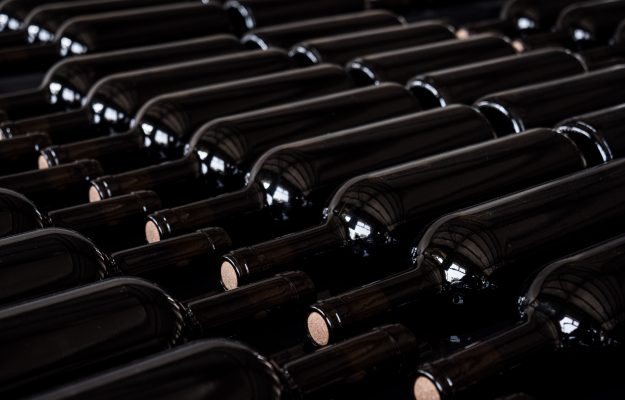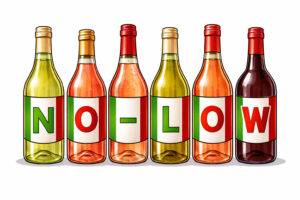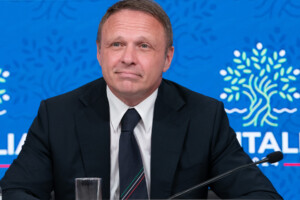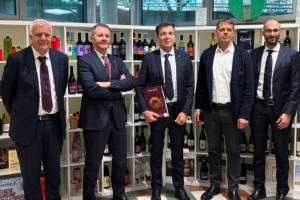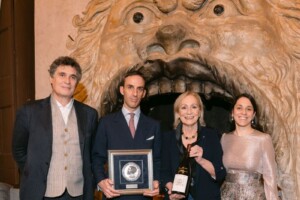The fact is that the world of wine, although on the whole seems to be holding up, sees many realities in great difficulty because of the pandemic. Above all, those oriented towards the on-trade, which, while it has started up again in Asia and is doing so in the USA and the UK, in many countries in Europe is still at a standstill, as in France and Germany, and in others, such as Italy, it is starting up again, but with limited scope (at least until May, with outdoor service only, and therefore with a potential that has more than halved). And in light of this, but also of the requests coming from the various representatives of the supply chain put on the “Wine Table”, coordinated by the Undersecretary of Agriculture (with delegation to wine), Gian Marco Centinaio, it seems to go back more or less to a year ago. And if there are measures requested that everyone agrees on (from support for liquidity to tax and contribution relief, from the need for greater promotion to the approval of the decree on the single standard of sustainability), on other measures, such as crisis distillation for PDO and PGI wines, for example, there are different views among the representatives of the sector.
As already reported, in recent days, by WineNews, for the Alleanza delle Cooperative, whose wine group is led by Luca Rigotti, the priorities are the introduction of a crisis distillation for PDO and PGI wines at remunerative prices, structured differently and with more resources than the measure introduced in 2020, which was not very successful, but also hold on the yields of ordinary wines, as well as the extension of the expiry date of planting authorizations 2021, a request shared by Confagricoltura, because companies do not have liquidity to face the necessary investments.
And precisely the issue of liquidity is the priority to be addressed, for example, according to the Unione Italiana Vini (UIV), led by Ernesto Abbona: “at this time we need tools to put in place financial security thousands of wine companies bent by the closures horeca, with 500 million euros of bad debts and missed sales, for 1.5/1.8 billion euros. At the same time, a more flexible promotion towards third countries will also be needed to intercept the rebound that we expect. The sector must restart from these 2 cornerstones, while we think that distillation is not suitable for this particular moment. In the coming months, Italian wine will be gambling its future. If through the supply chain fund, effective financial measures can be adopted to bring the sector out of the impasse, we will be ready to start again. Otherwise, there is a risk of distorting chain dynamics, particularly on the price front, capable of overwhelming a system that has been successful up to now. However, between lack of revenues and unpaid receivables, the market picture today is particularly fluid and it would be a shame not to take advantage of a scenario that could turn out to be favorable. This - concluded Ernesto Abbona - is a crisis of liquidity, no longer of the market, and if we do not support the latent demand this will turn elsewhere”. Among the requests of the Unione Italiana Vini (UIV), the strengthening of non-repayable contributions, the exemption from the payment of social security contributions also for 2021 and the suspension of tax payments and VAT payments on stranded trade receivables. Interventions were also requested regarding the storage of PDO and PGI wines and the approval of the implementing decrees on the yields of generic wines and sustainability. On the subject of distillation, Federvini’s view is still different, according to which it is not a priority measure, at least at a general level: “if for some specific situations at the level of PDO and PGI producers request it, they will have our support - points out President Sandro Boscaini - but it cannot be a generalized request for Italian PDO and PGI at a national level, otherwise we will once again be paying attention to the value of our productions”. In a complex international context, underlines the president of Federvini, in a Europe where the dossier on cancer (with the possible future introduction of labels like on cigarette packets to dissuade abuse) and the reform of the CAP and the Wine CMO, the tensions on taxes are suspended between the US and the EU, grow in other areas of the world, as recounted by the recent dispute between China and Australia over wine, through new bureaucratic complications in Russia and China, without forgetting the United Kingdom and Brexit, “the wine sector needs to see a safe restart of the HoReCa channel and the hospitality sector in general. They are our first allies, they are a very important channel for wine consumption: there is no magic recipe to propose but it is necessary to act urgently both on the financial front for energetic injections of liquidity, and on the fiscal front to lighten all the critical situations in particular on the credit front”.
In any case, for the president of the Italian oenologists (Assoenologi) Riccardo Cotarella, it is clear how “dramatic is the situation that the entire sector, at all levels, is experiencing”, especially for producers, “the weakest link at the moment, but also the most important, of the entire wine chain and that more than others are suffering the crisis that has affected the economy of wine and all other sectors of the national business”. Who, as the cooperatives, considers important the voluntary crisis distillation only for PDO and PGI wines, "provided that at reasonable prices". According to Cotarella, looking at stocks, in some regions, there is a growth of 10-11% in 2020, especially for some white wines, “which will see their value drop even more with the arrival of the next harvest”. “Voluntary distillation - the president pointed out - is also dictated by the need to prepare for the upcoming 2021 harvest and to cope with the lack of the Horeca distribution channel”. And then, of course, there is the need for an injection of liquidity, both for wine companies and to restart catering, support for wine storage, but also a “strong promotional campaign in favor of wine tourism both in Italy and abroad. A need, the latter, raised by many parties given the absence of international fairs due to the Covid emergency. Not secondary, according to Cotarella, the whole chapter of the relief on contributions and taxes, but also the definition of the single standard of sustainability. All measures that will be financed, according to Italian oenologists, with resources to be found outside the National Support Plan for wine”.
Many proposals, therefore, put on the table by the supply chain. Some shared, others less so. Now it will be up to politics to find a synthesis, represented at the “Wine Table” by the Undersecretary for Agricultural Policies, with responsibility for wine (and former Minister of Agricultural Policies) Gian Marco Centinaio (in the next few hours, in an interview with WineNews): “I’m convinced that wine is the spearhead of the agro-food industry in our country, and that it is able to drive all of Made in Italy - said Centinaio - just as I believe that a good part of the tourism that will arrive in the near future can be linked to this sector. Given the economic and social situation that we are experiencing, I will put all my efforts. And those who know me know that if I make a commitment I try to see it through to the end. The priority now is to solve the problems, then we’ll be able to plan. I will concentrate on interventions that concern three macro sectors: aid to companies, promotion in Italy and abroad, simplification and bureaucratization. I plan to update this table on measures and projects as soon as possible. It’s time to roll up our sleeves and work to give the sector answers as quickly as possible”.
Copyright © 2000/2026
Contatti: info@winenews.it
Seguici anche su Twitter: @WineNewsIt
Seguici anche su Facebook: @winenewsit
Questo articolo è tratto dall'archivio di WineNews - Tutti i diritti riservati - Copyright © 2000/2026










